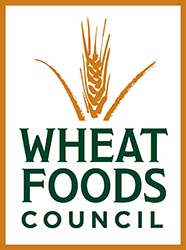Changing views on America’s best foods.
The Wheat Foods Council (WFC) strategic plan identifies target audiences and establishes messaging priorities developed through an extensive dialog with the wheat industry including producers, millers, bakers and others in the wheat value chain.
As we developed this strategic plan our guidelines were:
- Focus on ideas appropriate for the WFC to undertake
- Seek the opportunities with the greatest ROI and upside potential that WFC could advance
- Identify the industry’s biggest problems for which WFC could provide solutions
Mission Statement: The WFC is an industry-wide partnership dedicated to increasing domestic wheat foods consumption through nutrition information, research, education and promotional programs.
Vision: The WFC seeks to deliver a program of wheat foods promotion while correcting misinformation where appropriate—play offense as much as possible; play defense when necessary.
WFC follows an influencer strategy targeting our programs to influencers who will multiply our messages to the audiences they communicate with. This strategy is highly appropriate due to the WFC’s limited budget and the effectiveness of message multiplication by selecting the right influencer targets and providing them with compelling information and programs.
Why is the Wheat Foods Council’s Work Important?
We have all seen what happens when fad diets, media headlines and influencers declare wheat foods should be avoided. WFC is working every day to educate the key influencers about the positive nutrition in wheat foods and the fallacy of fad diets. As these influencers become better informed, the advice they provide supports wheat foods consumption reaching millions of consumers every day.
Our History
Wheat producers across the country joined together in 1972 to create the Wheat Foods Council. It was created as a national non-profit organization to promote the category of wheat-based foods, including baked goods, cereal, crackers, pretzels, pasta, sweet goods and tortillas. Since then, our organization has established itself as a leading source of science-based information on wheat and wheat foods nutrition. Backed by our 50-year history, we are proud to share our expertise about “all things wheat foods” with health and nutrition practitioners, educators, the media, consumers, and anyone who, like us, loves the many wonderful foods made from wheat.





